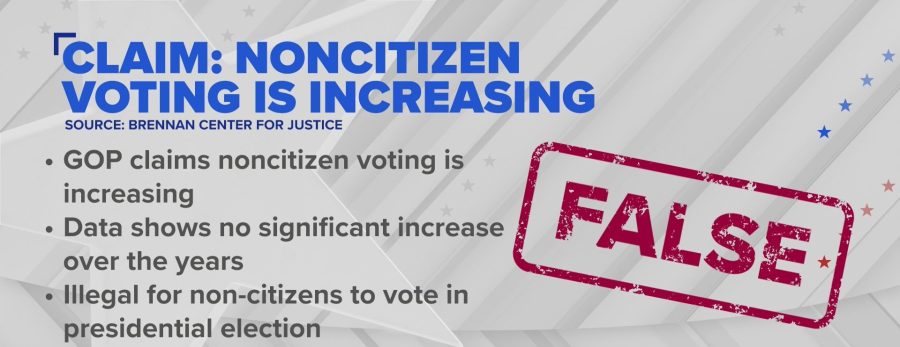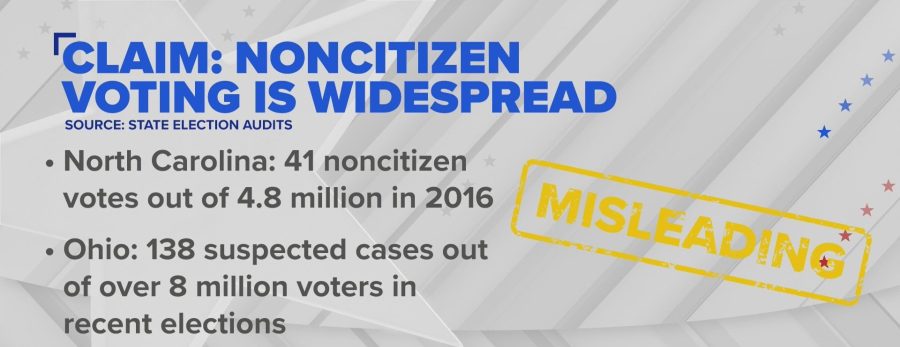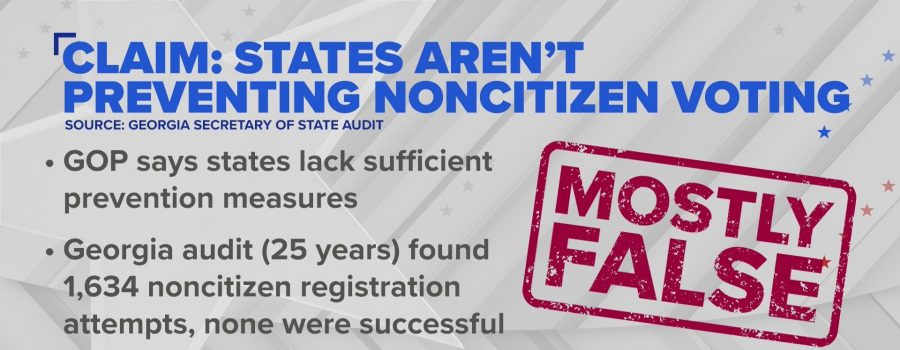Fact check: GOP claims on noncitizen voting lack evidence
- The GOP has been raising alarms about noncitizens voting illegally
- Noncitizen voting is rare: 41 in NC, 138 in OH out of millions
- States have effective measures to prevent illegal voting
(NewsNation) — As the U.S. presidential election approaches, some Republicans are raising alarms about noncitizens voting illegally.
Former President Donald Trump has repeatedly claimed that “noncitizen illegal migrants are getting the right to vote, being pushed by crooked Democrat politicians.”
Similarly, at a North Carolina campaign event, Sen. JD Vance, R-Ohio, accused Vice President Kamala Harris of wanting to “give all those illegal aliens the right to vote.”
These statements are misleading. A NewsNation fact-check reveals these claims are largely unsupported by evidence.

Claim: Noncitizen Voting is increasing
Fact-Check: False and misleading
Data doesn’t support the GOP claim of increasing noncitizen voting in upcoming elections. Voting in Federal elections by non-U.S. citizens is illegal nationwide. Recent reviews and audits show no significant uptick in such attempts.
Evidence from North Carolina and Ohio demonstrates that noncitizen voting is extremely rare:
- North Carolina: 41 noncitizen votes out of 4.8 million in 2016
- Ohio: 138 suspected cases out of over 8 million voters in recent elections
These numbers represent a minuscule percentage of overall votes and did not impact election outcomes.

Claim: States aren’t preventing noncitizen voting
Fact-Check: Mostly false
Most states have stringent measures to verify citizenship before voter registration.
For example, a 25-year audit in Georgia found 1,634 noncitizen registration attempts, none of which were successful. This demonstrates that while the system isn’t perfect, it effectively catches and prevents illegal voting registrations.
The GOP argues that states lack sufficient prevention measures, but the evidence suggests otherwise.

Are there any exceptions?
While it’s true that three states (California, Maryland, and Vermont) and Washington D.C. allow noncitizens to vote in certain local elections, it remains illegal for noncitizens to vote in federal elections, including presidential races.
Democrats argue these claims are intended to create doubt and distraction ahead of the November election.
The Supreme Court on Thursday partially agreed to the Republican National Committee’s (RNC) emergency request to revive an Arizona law that strengthens proof-of-citizenship requirements for voting.
The available data suggests that such voting is not a significant threat to election outcomes.










